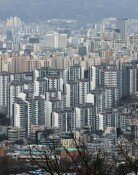S. Korean government announces K-battery development strategy
S. Korean government announces K-battery development strategy
Posted July. 10, 2021 07:42,
Updated July. 10, 2021 07:42
The South Korean government announced on Thursday its K-battery development strategy, which includes 40.6-trillion-won domestic investment by three major battery producers and materials and parts manufacturers until 2030 and the government’s expanded tax benefits for research and development and facility investment, as well as support for acquiring new talents. LG Energy Solution, a leading battery company, decided to invest 15.1 trillion won in the domestic market over the next decade along with LG Chem. SK Innovation will significantly increase investment to become one of the top three companies in the world next year, and Samsung SDI will focus on the development of all-solid-state batteries.
As the global secondary cell market is expected to exceed the memory semiconductor market in 2025, the joint development of the strategy by the government and companies is meaningful. Some say that the government’s support measures came out belatedly as South Korean companies are struggling this year due to the rapid growth of Chinese companies, such as CTA and BYD, even though the three major companies of South Korea accounted for 44.1 percent of the market last year, which was higher than the market share of Chinese (33.2 percent) or Japanese (17.4 percent) companies.
The government announced that batteries will be listed as a national strategy technology along with semiconductors and that the Restriction of Special Taxation Act will be amended to raise the maximum tax exemption benefits for large companies’ research and development investment to 40 percent and facility investment to 10 percent. The government raised the tax exemption benefits by a large margin, which were reduced to one to two percent as the previous government administrations cut tax benefits for large companies’ investment. It only makes sense that the government responded with expanded tax benefits as countries around the world are asking South Korean companies to build semiconductor plants with special tax benefits. The government’s five-year investment budget of 306.6 billion won for the development of secondary cell technologies seems rather insufficient.
Talents are as important as tax benefits. The government will set up battery-related majors at universities and produce over 1,100 battery experts with a Master’s or Ph.D. degree every year. It should not be repeated that the government puts forward a talent development plan for a specific area and the plan is later revoked due to an issue with the number of students at a university. The regulation that bans battery plants in Seoul or nearby regions, which is preferred by top talents, should be also eased. Rather than announcing investment plans with companies, what is more urgent for the government to do is to remove hurdles for businesses.






